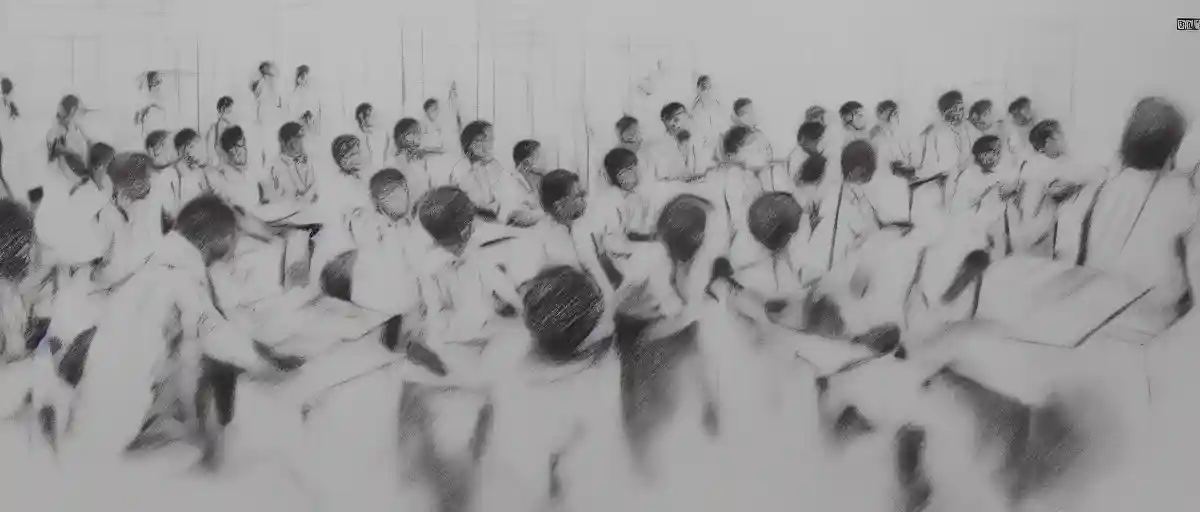You Might Find This Fascinating As Well:
“Unprecedented Learning Loss Threatens Students – Government Aid Offers a Lifeline!”
The detrimental effects of the COVID-19 pandemic on students’ education cannot be understated. Extended school closures and the sudden shift to remote learning have left many students grappling with significant learning loss. Research has indicated a substantial decline in proficiency levels, particularly in crucial subjects such as math and reading. This learning gap poses a serious threat to the educational development of students across the United States.
However, the US government has recognized the urgency of this issue and has taken proactive measures to address the learning loss caused by the pandemic. The allocation of $122 billion in Elementary and Secondary School Emergency Relief (ESSER) funds as part of the American Rescue Plan Act signifies a commitment to supporting schools and ensuring that students can recover from their missed learning opportunities.
This financial aid provides schools with the means to implement various strategies aimed at helping students catch up on their education. By deploying additional teachers, offering tutoring services, investing in technology and educational resources, and implementing evidence-based intervention programs, schools can effectively bridge the learning gaps that have emerged during the pandemic. It is crucial for schools to tailor these strategies to the specific needs of their students, ensuring that targeted support is provided to address their individual learning requirements.
However, as with any significant government intervention, there are varying perspectives on the allocation of funds and their impact on students’ educational recovery. Some argue that the funds may not reach all schools equitably, leading to a further exacerbation of educational disparities. They contend that schools in low-income areas may struggle to access the necessary resources and support, thereby perpetuating existing inequalities in education.
Furthermore, skeptics worry that simply pouring funds into schools may not be sufficient to address the complex challenges arising from the learning loss. They argue that a one-size-fits-all approach may not effectively cater to the unique needs of individual students. Instead, they propose that schools focus on implementing targeted interventions tailored to the specific learning gaps and provide ongoing assessment and support to ensure sustained progress.
Culmination, the alarming learning loss experienced by students due to the COVID-19 pandemic necessitates urgent action. The allocation of substantial funds by the US government presents a vital lifeline for schools to address this crisis. However, it is crucial to ensure equitable distribution of resources and adopt targeted interventions that address the diverse needs of students. By combining financial support with evidence-based strategies and personalized assistance, we can work towards mitigating the long-term impacts of the pandemic on students’ educational journeys.
Here's A Video We Thought You Might Also Like:
Author Profile

- I'm a seasoned political commentator, providing analysis and insight into the pressing issues of our time. Through my articles, I aim to foster informed political discussions and encourage civic engagement.
Latest entries
 Breaking News2023.12.18Amazing Revelation President Biden’s Daughter Faces Serious Tax Troubles!
Breaking News2023.12.18Amazing Revelation President Biden’s Daughter Faces Serious Tax Troubles! Breaking News2023.12.16Startlingly Claims District Attorney Prioritizing Activism Over Law Enforcement
Breaking News2023.12.16Startlingly Claims District Attorney Prioritizing Activism Over Law Enforcement Breaking News2023.12.15Explosive Allegations Congresswoman Files Ethics Complaint Against Judge in High-Stakes Trump Case!
Breaking News2023.12.15Explosive Allegations Congresswoman Files Ethics Complaint Against Judge in High-Stakes Trump Case! Breaking News2023.12.10Disconcerting Poll Results! Americans Divided on Trump-Biden Rematch
Breaking News2023.12.10Disconcerting Poll Results! Americans Divided on Trump-Biden Rematch






